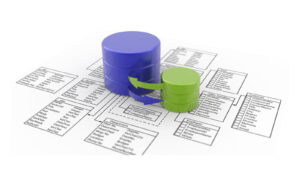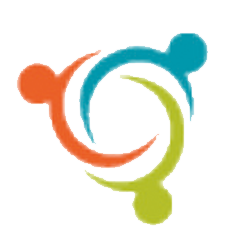
Diploma in SQL Database Programming
Live-Online classes-Schedule
Lorem ipsum dolor sit amet, consectetur adipiscing elit. Ut elit tellus, luctus nec ullamcorper mattis, pulvinar dapibus leo.
- Database concepts
- Relational model
- SQL Language overview
- SQL Server editions and tools
- SQL Server Management Studio
- Creating tables
- Creating views
- Creating indexes
- Creating stored procedures
- Creating triggers
- Creating user-defined functions
- Creating user-defined data types
- Modifying database objects
- Transact-SQL Language overview
- Querying data using SELECT statements
- Filtering and sorting data
- Joining tables
- Aggregating data
- Modifying data using DML statements
- Using subqueries and common table expressions
- Using functions and operators
- Using variables and control statements
- Error handling and transactions
- Performance optimization
- Query tuning
- Index tuning
- Locking and concurrency
- Query execution plans
- Partitioning
- Data compression
- Change Data Capture (CDC)
- In-Memory OLTP
- Database backup and restore
- Database security
- SQL Server Agent
- SQL Server Profiler
- Database Mail
- SQL Server Integration Services (SSIS)
- SQL Server Reporting Services (SSRS)
- SQL Server Analysis Services (SSAS)
Live-Online classes-Schedule
About the course
Learning database programming offers several compelling reasons and benefits. Here are some key reasons why learning database programming can be advantageous:
Data Storage and Management: Databases are at the core of storing and managing data for organizations. By learning database programming, you gain the skills to effectively create, organize, and manipulate data within databases. This ability is crucial in a wide range of industries and professions that rely on data management, such as finance, healthcare, e-commerce, logistics, and more.
Career Opportunities: Proficiency in database programming opens up a multitude of career opportunities. Database administrators, data analysts, data engineers, and software developers with database expertise are in high demand across various industries. Learning database programming can significantly enhance your employability and career prospects.
Efficient Data Retrieval: Databases are designed to efficiently retrieve data based on specific requirements. By learning database programming, you acquire the skills to write optimized queries that retrieve and manipulate data quickly. This is essential for generating reports, extracting insights, and making informed business decisions based on data analysis.
Application Development: Many applications, ranging from simple web applications to complex enterprise systems, require data storage and retrieval. By learning database programming, you can effectively integrate databases into your applications, allowing you to store and retrieve data efficiently. This skill is crucial for developing robust and scalable applications.
Data Integrity and Security: Databases provide mechanisms to ensure data integrity and security. Learning database programming equips you with the skills to implement appropriate security measures, enforce data integrity constraints, and handle data encryption. This knowledge is essential for protecting sensitive information and maintaining the integrity of data stored in databases.
Data Analysis and Reporting: Databases are a rich source of data that can provide valuable insights for decision-making. By learning database programming, you can perform complex data analysis tasks, generate reports, and visualize data effectively. These skills are highly valuable in roles involving data analysis, business intelligence, and reporting.
Collaborative Projects: Database programming often involves working on collaborative projects with teams. Learning database programming enables you to effectively collaborate with others, share and manage database resources, and work collectively on database-related tasks. These collaboration skills are beneficial in various professional settings.
Understanding Systems Architecture: Databases are a critical component of many software systems. By learning database programming, you gain insights into the architectural aspects of applications that interact with databases. This understanding helps you design and develop robust and scalable systems that efficiently utilize databases.
Data Integration: Organizations often deal with data from various sources that need to be integrated into a cohesive system. Learning database programming allows you to integrate data from different sources, perform data transformation, and ensure data consistency. This skill is crucial for building data pipelines and data integration workflows.
Continuous Learning and Adaptability: The field of database technology is continually evolving, with new technologies, tools, and trends emerging regularly. By learning database programming, you develop a mindset of continuous learning and adaptability. This allows you to stay updated with the latest advancements and technologies in the field, enhancing your professional growth and marketability.
Completing a database programming course can help you develop a range of valuable skills that are applicable in database management, software development, and data-driven applications. Here are some skills you can develop by completing a database programming course:
Database Design: You will gain skills in designing efficient and scalable database schemas. This includes understanding concepts like entity-relationship modeling, normalization, and creating well-structured database tables and relationships.
SQL (Structured Query Language): You will become proficient in SQL, the standard language for interacting with relational databases. This includes writing complex queries to retrieve, manipulate, and manage data stored in databases.
Relational Database Management Systems (RDBMS): You will gain a thorough understanding of RDBMS concepts and become familiar with popular database management systems such as MySQL, Oracle, Microsoft SQL Server, or PostgreSQL. You will learn how to work with these systems and leverage their features for efficient data storage and retrieval.
Database Connectivity: You will learn how to establish connections between applications and databases, enabling data exchange. This involves understanding database connectivity frameworks or APIs, such as JDBC for Java or ADO.NET for .NET applications.
Data Modeling: You will develop skills in creating logical and physical data models, representing the structure and relationships of data in a database. This includes entity-relationship diagrams and translating these models into actual database schemas.
Database Administration: You will acquire skills related to database administration, including user management, access control, backup and recovery, and performance tuning. These skills are essential for effectively managing and maintaining databases in a production environment.
Query Optimization: You will learn techniques to optimize database queries for improved performance. This involves understanding query execution plans, indexing strategies, and query optimization techniques to ensure efficient retrieval of data.
Data Security: You will gain knowledge of database security best practices, including securing access to databases, implementing user authentication and authorization mechanisms, and encrypting sensitive data to protect it from unauthorized access.
Data Integration: You will learn how to integrate data from various sources into a database. This includes techniques for data extraction, transformation, and loading (ETL), as well as data migration strategies.
Troubleshooting and Debugging: Completing a database programming course will enhance your skills in identifying and resolving database-related issues, such as data inconsistencies, performance bottlenecks, or query optimization problems. You will develop the ability to troubleshoot and debug database-related problems efficiently.
Data Analysis and Reporting: Database programming skills enable you to retrieve and analyze data for generating reports and insights. You will gain skills in writing complex SQL queries to perform data analysis tasks and generate meaningful reports.
Collaboration and Teamwork: Many database programming projects involve working in teams. You will develop skills in collaborating with others, sharing database resources, and working collectively on database-related tasks and projects.
